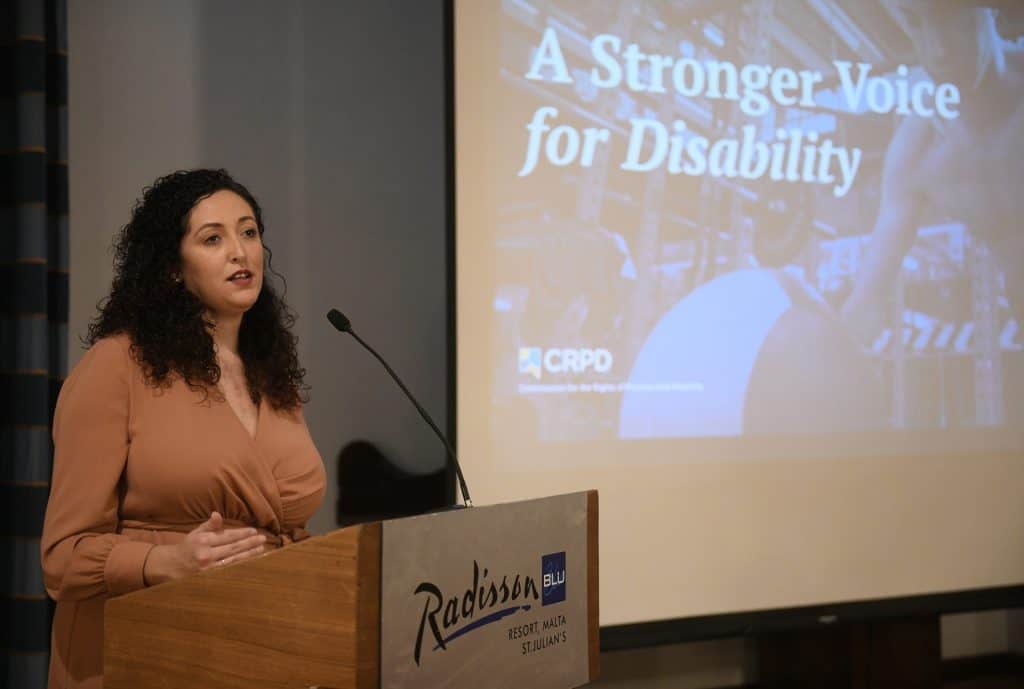
Readers familiar with this blog know that I do not presume to have a contribution to make to every controversy on the island. People familiar with me know that I’m likely to have an opinion. But I limit the opinions I write about in my blog to ones that are informed, that I’ve read about, that I’ve had the opportunity to determine facts about through my own investigations or because of questions I ask that amount to more facts than the reader is likely to have in their possession.
The raging IVF controversy is one of those subjects. I am as capable as the next guy to read reports on the debate, to feel empathy for the users of this technology, to hear the ethical concerns of those who are not. Which is why the next guy doesn’t need me to inflict my opinions on them.
This is not an article about the IVF controversy, but on a governance issue that arose from the way the debate has progressed so far.
The Commissioner for Persons with Disability, Samantha Pace Gasan, published a statement on 9 June announcing the Commission’s backing of the government’s plans to allow testing of IVF embryos for nine rare genetic conditions before implantation in the womb.
Two days later, on the 11th, 12 of 14 members who sit under the presidency of Commissioner Samantha Pace Gasan in the Council for the Rights of Persons with Disability issued a statement saying that the Commissioner expressed a view they disagreed with. They disagreed with it very strongly. They described the opinion as “seriously undermining of the work of the Maltese movement of persons with disability over the last decades”.
Some background. Both the Commissioner and the Council for the Rights of Persons with Disability are established by the law. The Commissioner and the Council are chosen by the government. The government can hire to the position of Commissioner anyone, preferably a person with disability.
The government is however required to appoint to the Council 9 “representatives of voluntary organisations of persons with disability”, and representatives from the University, service providers, residential homes, and the Opposition. The government only really gets a free hand appointing one person of its own choice, and of course the Chairperson who presides.
Right or wrong this episode has shown that the government-appointed commissioner has expressed a categorical view in a matter of national controversy either without asking the Council what they thought about it or by overruling them. She didn’t clarify this was her opinion. She expressed what she presented as official policy of the Commission which meant that it was reasonable for the public to understand by that that she was speaking in the interests of persons with disability and in representation of the opinion broadly held by people who operate in the sector.
She didn’t. It wasn’t.
The Commissioner does not report to the Council. She is appointed separately. But she is forced by law to sit in committee with them as the law expects the Council to better represent the interests of the people she’s meant to care for and act on behalf of, i.e., persons with disability, than anyone they might handpick for the job.
You may agree or disagree with how the Council members feel about the subject but you can’t ignore the fact that the law empowers them to speak in representation of the sector and of persons with disability.
I can’t see how Samantha Pace Gasan can continue to function in her role after this breakdown of relations with the Council she presides. All but one took the time to make a public statement to disagree with her and to criticise her for having the audacity to claim to be speaking publicly on their behalf. All but one made a public statement that she had misrepresented them publicly. There’s a breach of trust that cannot be ignored unless the government intends to retain a person more concern with representing its views rather than the views of persons with disability.